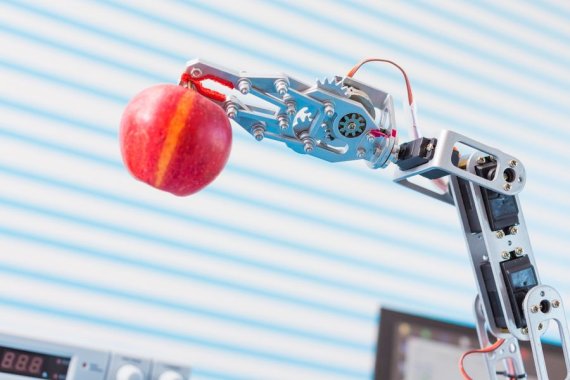© Shutterstock
The research programme Cognitive Robots for Flexible Agro Food Technology (Flexcraft) is led by Eldert van Henten, professor of Farm Technology in Wageningen. His group wants to develop new robotics for such tasks as picking apples – but only ripe apples – and packaging chicken breasts. In the current situation, slaughterhouse employees are packaging the chicken in cool stores, which is not the most pleasant of jobs. Besides, work executed by humans is not as hygienic as when done by a robot, say the researchers.
The new robots should be able to take on plethora tasks, the robotics experts state. The machines must be able to recognise what kind of food they observe, in what state it is, and how to handle it. The robots must also be able to handle many types of products of varying form, size, colour and consistency.
Innovation
NWO granted the research funding on 8 November during its annual innovation congress. The research is funded using money from the Perspectief programme. This programme funds research that ‘contributes to technological innovation offering potential economic impact for the Netherlands’.
NWO funded a total of six Perspectief programmes. WUR is involved as participant in two other programmes: LettuceKnow and Electrons to Chemical Bonds. Harry Bitter, professor of Biobased Chemistry and Technology at WUR, is participating in Electrons to Chemical Bonds (EC2B), which will build molecules using sustainable electricity. And six plant scientists from the Biosystematics, Genetics, Plant Breeding and Molecular Biology groups are either project leader or researchers within the LettuceKnow programme. This programme aims to develop lettuce and other leafy greens which thrive under extreme environmental conditions, such as draught, heat and silted soil.
Additional reading (partly in Dutch):
Vervolgonderzoek voor paprika-plukrobot
PhD student designs egg robot

